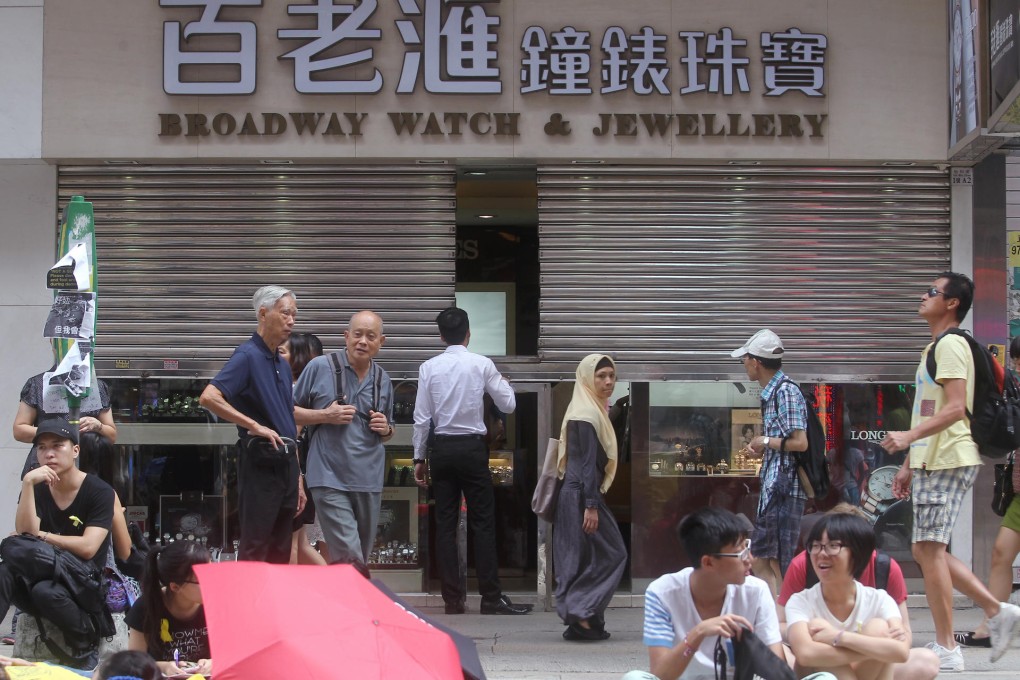Despite street protests, Hong Kong's global image remains untarnished
While one index ranks city's civil unrest level below Liberia and North Korea, traditional ratings agencies say it is business as usual

As pro-democracy protesters hold out into a second week of a civil disobedience campaign, there are few signs that dramatic images of Mong Kok street brawls or a barricaded city centre are having any tangible impact on the city's global reputation.
"What is happening here is the same thing that happens in other low-risk places. You have demonstrations in London, New York and Paris, and they don't get labelled high risk just because they have had some demonstrations," said John Barclay, the managing director of Primasia Corporate Services, a company incorporation specialist. "Every single [business] inquiry in the [Primasia] pipeline is proceeding as if nothing has happened."
The mostly good-natured demonstrations have drawn ire from local politicians and business leaders concerned at any possible erosion to the carefully sculptured image of Hong Kong as a safe, business friendly, trading hub.
However, according to one risk consultancy, this image now has some scuff marks. The protests have pushed the city's social stability below that of strife-torn Liberia and the hermit nation of North Korea, according to an index published yesterday.
The Civil Unrest Index, from British risk consultancy Maplecroft, assesses the likelihood that economic, social and political factors will trigger strikes, protests, ethnic or religious clashes or other conflicts. In the fourth quarter, Hong Kong was assigned a civil unrest reading of 4.86, against 4.9 for North Korea and Liberia. A score of zero indicates the highest risk, with a reading of 10 the lowest risk.
Maplecroft's reading of the risks to Hong Kong stability from the political stand-off contrasts starkly with the far more sanguine assessment of global ratings agencies and investors.